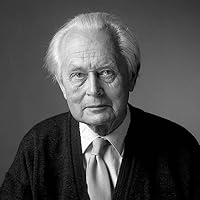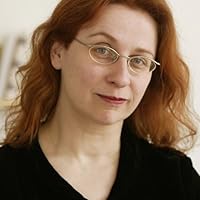Omniscience Quotes
Quotes tagged as "omniscience"
Showing 1-30 of 46

“It sounds like a fairy-tale, but not only that; this story of what man by his science and practical inventions has achieved on this earth, where he first appeared as a weakly member of the animal kingdom, and on which each individual of his species must ever again appear as a helpless infant... is a direct fulfilment of all, or of most, of the dearest wishes in his fairy-tales. All these possessions he has acquired through culture. Long ago he formed an ideal conception of omnipotence and omniscience which he embodied in his gods. Whatever seemed unattainable to his desires - or forbidden to him - he attributed to these gods. One may say, therefore, that these gods were the ideals of his culture. Now he has himself approached very near to realizing this ideal, he has nearly become a god himself. But only, it is true, in the way that ideals are usually realized in the general experience of humanity. Not completely; in some respects not at all, in others only by halves. Man has become a god by means of artificial limbs, so to speak, quite magnificent when equipped with all his accessory organs; but they do not grow on him and they still give him trouble at times... Future ages will produce further great advances in this realm of culture, probably inconceivable now, and will increase man's likeness to a god still more.”
― Civilization and Its Discontents
― Civilization and Its Discontents
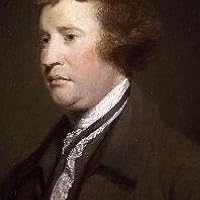
“Whoever undertakes to set himself up as a judge of Truth and Knowledge is shipwrecked by the laughter of the gods."
[Preface to Brissot's Address to His Constituents (1794)]”
― On Empire, Liberty, and Reform: Speeches and Letters
[Preface to Brissot's Address to His Constituents (1794)]”
― On Empire, Liberty, and Reform: Speeches and Letters

“The common man prays, 'I want a cookie right now!' And God responds, 'If you'd listen to what I say, tomorrow it will bring you 100 cookies.”
― Killosophy
― Killosophy

“We ought to regard the present state of the universe as the effect of its antecedent state and as the cause of the state that is to follow. An intelligence knowing all the forces acting in nature at a given instant, as well as the momentary positions of all things in the universe, would be able to comprehend in one single formula the motions of the largest bodies as well as the lightest atoms in the world, provided that its intellect were sufficiently powerful to subject all data to analysis; to it nothing would be uncertain, the future as well as the past would be present to its eyes. The perfection that the human mind has been able to give to astronomy affords but a feeble outline of such an intelligence.”
―
―

“When God is our Holy Father, sovereignty, holiness, omniscience, and immutability do not terrify us; they leave us full of awe and gratitude. Sovereignty is only tyrannical if it is unbounded by goodness; holiness is only terrifying if it is untempered by grace; omniscience is only taunting if it is unaccompanied by mercy; and immutability is only torturous if there is no guarantee of goodwill.”
―
―

“What's simple is that everything good comes from God, and everything bad comes from man. Where it gets complicated is that everything seemingly good but ultimately bad comes from man, and everything seemingly bad but ultimately good comes from God.”
― Healology
― Healology

“And yet viewing several depictions of even an imaginary city, is enlightening in a way," Leibniz said. "Each painter can view the city from only one standpoint at a time, so he will move about the place, and paint it from a hilltop on one side, then a tower on the other, then from a grand intersection in the middle--all in the same canvas. When we look at the canvas, then, we glimpse in a small way how God understands the universe--for he sees it from every point of view at once. By populating the world with so many different minds, each with its own point of view, God gives us a suggestion of what it means to be omniscient.”
― Quicksilver
― Quicksilver

“The dead dwell in the conditional, tense of the unreal. But there is also the extraordinary sense that you have become omniscient, that nothing we do or think or feel can be kept from you. The extraordinary sense that you are reading these words, that you know what they’ll say even before I write them.”
― The Friend
― The Friend

“Yet it is unassailably true that so long as we lack omniscience and do not know all of the future, all our generalizations are fallible or only probable. And the history of human error shows that a general consensus, or widespread and unquestioned feeling of certainty, does not preclude the possibility that the future may show us to be in error.”
― An Introduction to Logic and Scientific Method
― An Introduction to Logic and Scientific Method
“People too often tolerate uncertainty prior to taking action; worse, some people believe that omniscience or infallibility are prerequisites for being certain, so they conclude that certainty (and therefore knowledge) is never possible. To any person who proclaims that "you can never be certain of anything", ask them: "are you sure?" and watch what happens.”
―
―

“God, as represented in Scripture, by nature, is the true non-conformist. He does not need to conform to any truth; He does not need to conform to some moral law. It proclaims that He is the Truth; He defines Morality: the Great I Am, the Beginning and the End who radiates all that is Holy. Therefore, and unless we too were wholly holy and omniscient, we would do well to understand at the very least that even if this God were to wipe away all in existence, then despite my opinion or your opinion, His decision would be objectively good and moral simply because He is the one doing it.”
―
―
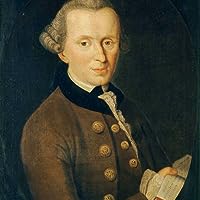
“...[A]ll the elements which belong to the notion of happiness are altogether empirical, that is, they must be borrowed from experience, and nevertheless the idea of happiness requires an absolute whole, a maximum of welfare in my present and all future circumstances. Now it is impossible that the most clear-sighted and at the same time most powerful being (supposed finite) should frame to himself a definite conception of what he really wills in this. Does he will riches, how much anxiety, envy, and snares might he not thereby draw upon his shoulders? Does he will knowledge and discernment, perhaps it might prove to be only an eye so much the sharper to show him so much the more fearfully the evils that are now concealed from him and that cannot be avoided, or to impose more wants on his desires, which already give him concern enough. Would he have long life? Who guarantees to him that it would not be a long misery? Would he at least have health? How often has uneasiness of the body restrained from excesses into which perfect health would have allowed one to fall, and so on? In short, he is unable, on any principle, to determine with certainty what would make him truly happy; because to do so he would need to be omniscient.”
― Fundamental Principles of the Metaphysic of Morals
― Fundamental Principles of the Metaphysic of Morals

“Children understood at a very young age that doing nothing was an expression of power. Doing nothing was a choice swollen with omnipotence. It was, in fact, godly.
And this, she now realized, was the reason why the gods did nothing. Proof of their omniscience. After all, to act was to announce awful limitations, for it revealed that chance acted first, the accidents were just that—events beyond the will of the gods—and all they could do in answer was to attempt to remedy the consequences, to alter natural ends. To act, then, was an admission of fallibility”
― Dust of Dreams
And this, she now realized, was the reason why the gods did nothing. Proof of their omniscience. After all, to act was to announce awful limitations, for it revealed that chance acted first, the accidents were just that—events beyond the will of the gods—and all they could do in answer was to attempt to remedy the consequences, to alter natural ends. To act, then, was an admission of fallibility”
― Dust of Dreams
“Man has only wisdumb to gain knowledge but God alone has wisdom, for he possesses all knowledge past, present and future and there is not one iota of knowledge that he does not possess or will not possess.”
―
―

“If God is omniscient, this doesn't necessarily mean that he is omnipotent, too. Omniscience is associated with future events that cannot be changed. In similar way, it is impossible to change the causal chain leading up to the emergence of these future events, while omnipotence is related to the power to change and re-arrange this causal chain itself. Now the question is whether God can have it in his power to make such a change and re-arrangement? If yes, then God would contradict himself: how can God foreknow something that will not happen because of an alteration of the causal chain leading to its occurrence at a later time? If not, God would contradict himself, too: how can God be Almighty if he cannot alter what he believed to happen at a earlier time?”
―
―

“Omniscience, you see, is not a consequence of immortality, but a mere side-effect of being a time-demon.”
― Demons of Time: Race to the 7th Sunset
― Demons of Time: Race to the 7th Sunset

“We want the mind of God; we seek the heart of Christ - and even pray it, then receive them to a degree. But people are unable to bear these fully: for He is both stronger and more sensitive than we.”
―
―

“Omniscience is fiction,
But you need not know all.
Know the truth of love,
All that matters will be well.”
― Aşk Mafia: Armor of The World
But you need not know all.
Know the truth of love,
All that matters will be well.”
― Aşk Mafia: Armor of The World
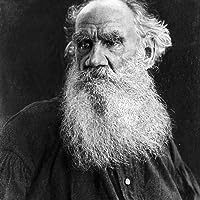
“The words chance and genius do not denote any really existing thing and therefore cannot be defined.
Those words only denote a certain stage of understanding of phenomena. I do not know why a certain event occurs; I think that 1 cannot know it; so 1 do not try to know it and I talk about chance. I see a force producing effects beyond the scope of ordinary human agencies; I do not understand why this occurs and I talk of genius.
To a herd of rams, the ram the herdsman drives each evening into a special enclosure to feed and that becomes twice as fat as the others must seem to be a genius. And it must appear an astonishing conjunction of genius with a whole series of extraordinary chances that this ram, who instead of getting into the general fold every evening goes into a special enclosure where there are oats—-that this very ram, swelling with fat, is killed for meat.
But the rams need only cease to suppose that all that happens to them happens solely for the attainment of their sheepish aims; they need only admit that what happens to them may also have purposes beyond their ken, and they will at once perceive a unity and coherence in what happened to the ram that was fattened. Even if they do not know for what purpose they are fattened, they will at least know that all that happened to the ram did not happen accidentally.”
― War and Peace
Those words only denote a certain stage of understanding of phenomena. I do not know why a certain event occurs; I think that 1 cannot know it; so 1 do not try to know it and I talk about chance. I see a force producing effects beyond the scope of ordinary human agencies; I do not understand why this occurs and I talk of genius.
To a herd of rams, the ram the herdsman drives each evening into a special enclosure to feed and that becomes twice as fat as the others must seem to be a genius. And it must appear an astonishing conjunction of genius with a whole series of extraordinary chances that this ram, who instead of getting into the general fold every evening goes into a special enclosure where there are oats—-that this very ram, swelling with fat, is killed for meat.
But the rams need only cease to suppose that all that happens to them happens solely for the attainment of their sheepish aims; they need only admit that what happens to them may also have purposes beyond their ken, and they will at once perceive a unity and coherence in what happened to the ram that was fattened. Even if they do not know for what purpose they are fattened, they will at least know that all that happened to the ram did not happen accidentally.”
― War and Peace
“Omniscience can’t coexist with omnipotence — because an omniscient mind is by definition incapable of making itself not know something.”
―
―
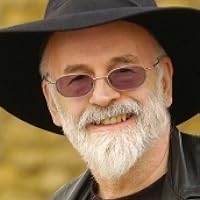
“Astfgl sat back. He wondered what did happen to Lavaeoulus.
Gods and demons, being creatures outside of time, don't move in it like bubbles in the stream. Everything happens at the same time for them. This should mean that they know everything that is going to happen because, in a sense, it already has. The reason they don't is that reality is a big place with a lot of interesting things going on, and keeping track of all of them is like trying to use a very big video recorder with no freeze button or tape counter. It's usually easier to just wait and see.”
― Eric
Gods and demons, being creatures outside of time, don't move in it like bubbles in the stream. Everything happens at the same time for them. This should mean that they know everything that is going to happen because, in a sense, it already has. The reason they don't is that reality is a big place with a lot of interesting things going on, and keeping track of all of them is like trying to use a very big video recorder with no freeze button or tape counter. It's usually easier to just wait and see.”
― Eric
“³In order to judge anything rightly, one would have to be fully aware of an inconceivably wide range of things; past, present and to come. ⁴One would have to recognize in advance all the effects of his judgments on everyone and everything involved in them in any way. ⁵And one would have to be certain there is no distortion in his perception, so that his judgment would be wholly fair to everyone on whom it rests now and in the future. ⁶Who is in a position to do this?
[M-10.3:3-6]”
― A Course in Miracles
[M-10.3:3-6]”
― A Course in Miracles
All Quotes
|
My Quotes
|
Add A Quote
Browse By Tag
- Love Quotes 97k
- Life Quotes 75.5k
- Inspirational Quotes 72.5k
- Humor Quotes 43.5k
- Philosophy Quotes 29.5k
- Inspirational Quotes Quotes 27k
- God Quotes 26k
- Truth Quotes 23.5k
- Wisdom Quotes 23.5k
- Romance Quotes 23k
- Poetry Quotes 22k
- Death Quotes 20k
- Happiness Quotes 18.5k
- Life Lessons Quotes 18.5k
- Hope Quotes 18k
- Faith Quotes 18k
- Quotes Quotes 16.5k
- Inspiration Quotes 16.5k
- Spirituality Quotes 15k
- Religion Quotes 15k
- Motivational Quotes 15k
- Writing Quotes 14.5k
- Relationships Quotes 14.5k
- Life Quotes Quotes 14k
- Love Quotes Quotes 13.5k
- Success Quotes 13.5k
- Time Quotes 12.5k
- Motivation Quotes 12k
- Science Quotes 11.5k
- Knowledge Quotes 11k

